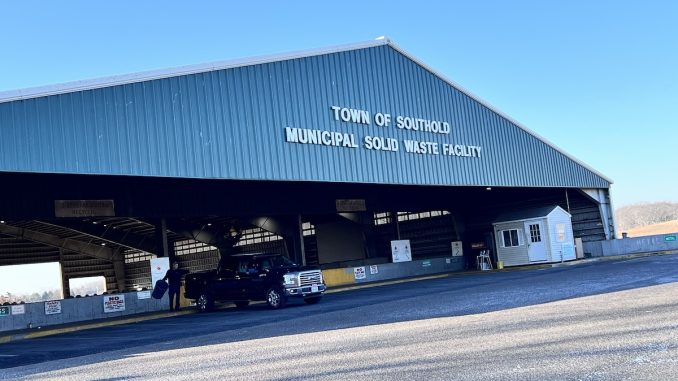
At the Jan. 7 Southold Town board meeting, a number of resolutions passed to increase fees for residents. While parking passes and event, yard sale and shellfish permit fees all went up, the largest price increase was the garbage pay-per-bag program, at 33%.
This change will go into effect March 1. The cost of the bags will go from 75 cents to $1 for 13-gallon bags, $1.50 to $2 for 33-gallon bags; and $2.25 to $3 for 44-gallon bags. Bags are available at the town disposal facility and locations around town, such as grocery stores. Residents can buy single bags or rolls of four.
“Everything in that bag you’re paying for. So the idea is to make people think, ‘Can I pull plastics out and recycle them? Is there compostable product in there, food scraps in there? Are there metal cans and anything that can be pulled out now?” said Nick Krupski, solid waste coordinator for the town. “By paying attention to what you’re doing, you’re not filling that bag very quickly, because you should be trying to limit how much actual trash goes in there.”
According to Southold Town, the program is estimated to have saved the town over $8 million since its launch in 1993. The town does not provide curbside pick-up of trash. Residents either bring their own waste and recyclables to the transfer station themselves or hire a private carter for curbside pick-up. This system limits the tax burden on residents and allows people to determine for themselves how best to handle their waste.

Southampton Town also utilizes a pay-per-bag program and does not provide garbage pick up. Residents can bring their garbage and recyclables to any of the town’s four recycling centers. They have two sizes, 13- and 33-gallon, which are $1.95 and $3.50 each.
Riverhead, by comparison, does not have a “pay-as-you-throw” program. Instead, they have garbage pickup that is managed by the town. Representatives of the Waste Management department stated that this is for the convenience of the residents and is funded through tax revenue.
The fees for disposal have not kept pace with inflation, and this increase is meant to help the town cover the shortfall of transporting the waste for incineration at the Babylon waste energy plant, said Mr. Krupski. It also encourages people to recycle and make use of the food waste composting pilot program.
“Compared to the other towns on the island, Southold has a pretty good recycling rate. I think the residents care about recycling and sending those things for reuse,” said Mr. Krupski.

